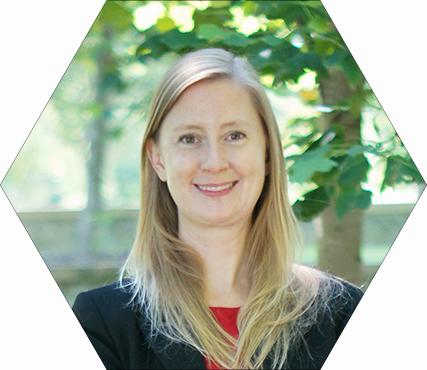Education
-
Ph.D. The Johns Hopkins University, 2008
-
B.S. cum laude University of California, Los Angeles, 2003
Background
Dr. Thomas joined Georgia Tech in November 2011 as an Assistant Professor. Prior to this appointment, she was a Whitaker postdoctoral scholar at École Polytechnique Fédéral de Lausanne (one of the Swiss Federal Institutes of Technology) developing nanomaterials for cancer immunotherapy and studying the role of lymphatic transport in immunity. Dr. Thomas received her Ph.D. from The Johns Hopkins University as a NSF Graduate Research Fellow where she studied the role of fluid flow in regulating blood-borne metastasis and identified novel biomarkers for the detection of metastatic colon cancers.
Research
Dr. Thomas’s research focuses on the role of biological transport phenomena in physiological and pathophysiological processes. Her laboratory specializes in incorporating mechanics with cell engineering, biochemistry, biomaterials, and immunology in order to 1) elucidate the role mechanical forces play in regulating seemingly unrelated aspects of tumor progression such as metastasis and immune suppression as well as 2) develop novel immunotherapeutics to treat cancer.
Cancer progression is tightly linked to the ability of malignant cells to exploit the immune system to promote survival. Insight into immune function can therefore be gained from understanding how tumors exploit immunity. Conversely, this interplay makes the concept of harnessing the immune system to combat cancer an intriguing approach. Using an interdisciplinary approach, we aim to develop a novel systems-oriented framework to quantitatively analyze immune function in cancer. This multifaceted methodology to study tumor immunity will not only contribute to fundamental questions regarding how to harness immune response, but will also pave the way for novel engineering approaches to treat cancer such as with vaccines and cell- or molecular-based therapies.
- Named Woodruff Professor, 2019
- Rita Schaffer Young Investigator Award, 2013
- Class of 1969 Teaching Fellow, 2013
- George W. Woodruff Teaching Fellow, 2012
- Department of Defense Breast Cancer Research Program Concept Award, 2009
- Whitaker Foundation International Scholarship, 2008
- National Science Foundation Graduate Research Fellowship, 2005
- National Science Foundation Integrative Graduate Education and Research Trainee, 2001
Representative Publications
- Thomas, S.N., Rutkowski, J.M., Pasquier, M., Kuan, E., Alitalo, K., E, Randolph, G., Swartz, M.A., 2012. Impaired humoral immunity and tolerance in K14-VEGFR-3-Ig mice that lack dermal lymphatic drainage. Journal of Immunology. 189 (5): 2181-90.
- Thomas, S.N., van der Vlies, A.J., O’Neil, C.P., Reddy, S.T., Yu, S.S., Giorgio, T.D., Swartz, M.A., Hubbell, J.A., Engineering complement activation on polypropylene sulfide vaccine nanoparticles. Biomaterials. 2011 Mar; 32 (8): 2194-203. Epub 2010 Dec 22.
- Hubbell, J.A., Thomas, S.N., Swartz, M.A., 2009. Materials engineering for immunomodulation. Nature. 462 (7272): 449-460.
- Konstantopoulos, K., Thomas, S.N. 2009. Cancer Cells in Transit: The Vascular Interactions of Tumor Cells. Annual Review of Biomedical Engineering. 11:177–202.
- Thomas, S.N., Zhu, F., Schnaar, R.L., Alves, C.S., Konstantopoulos, K. 2008. Carcinoembryonic antigen and CD44 variant isoforms cooperate to mediate colon carcinoma cell adhesion to E- and L-selectin in shear flow. Journal of Biological Chemistry 283(23): 15647-55.
- Napier, S.L., Healy, Z.R., Schnaar, R.L., Konstantopoulos, K. 2007. Selectin Ligand Expression Regulates the Initial Vascular Interactions of Colon Carcinoma Cells: The Roles of CD44v and Alternate Sialofucosylated Selectin Ligands. Journal of Biological Chemistry 282(6); 3433-3441.

